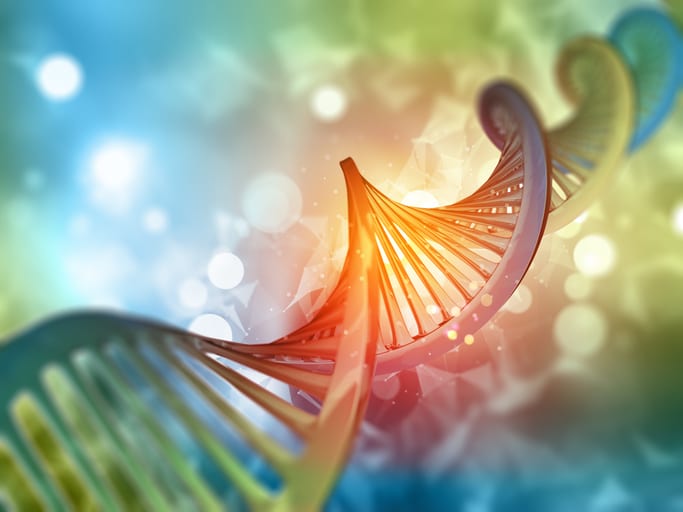The Key to a Healthy Smile Could Be in Your Genes

You take oral hygiene seriously, always making sure to brush once in the morning and again at night before heading off to bed. You limit the number of sugary sweets you eat a day and generally avoid drinking sugary beverages like soda that work to damage the health of your teeth. You even schedule regular exams and cleanings with your Corvallis dentist at Evergreen Dental. Yet you still frequently get cavities. Why?
You don’t have to work as a Corvallis dentist to know the important role brushing and flossing play in helping to protect the long-term health of your teeth and gums. What you do learn, however, is that every patient has his or her own oral health needs. Some patients can make only a minimal effort when it comes to brushing and flossing and never get a cavity, while others who do take their oral hygiene seriously still occasionally hear they have a hole in their tooth.
What separates these two patients is more than just the brands of toothpaste they buy or how long they brush – it’s genetics. While this may not seem fair, certain types of genetic variation may link to higher rates of tooth decay and gum disease, according to researchers. In fact, 2 studies conducted by researchers at the University of Pittsburgh School of Dental Medicine suggest that a healthy smile may really be in a person’s genes.
Genetics Can Determine the Health of a Smile
As part of the first study, researchers examined nearly 300 anonymous dental records and accompanying saliva samples taken from the school’s Dental Registry and DNA Repository. Researchers then assigned each case a scored based on the number of decayed teeth, missing teeth due to tooth decay, and the number of fillings. In general, individuals with lower overall scores had developed fewer cavities.
The saliva samples taken contained one of three variants, dubbed G-20A, G-52A AND C-44G. Individuals whose saliva carried the G-20A variant had scores nearly five times higher when compared to those who had other variants recorded. Individuals whose saliva showed traces of the G-20A variant were more likely to have lower overall scores.
Researchers believe that the variations lead to a difference in the body’s ability to inhibit the growth of oral bacteria. The mouth acts like a delicate ecosystem where good and bad bacteria coexist. Healthy mouths will maintain a delicate balance between healthy and unhealthy bacteria, while an unhealthy mouth will tend to have more unhealthy bacteria in total. Researchers believe that patients with certain genetic variants may have trouble maintaining a healthy balance, drifting more towards having a higher count of harmful bacteria instead.
In the second study, researchers from Pittsburgh joined with a team in Brazil to examine the saliva samples of 389 people from 55 different families to look for genetic links to aggressive gum disease, which is the rapid and severe destruction of the gums and underlying bone structure that holds our teeth into position.
Researchers discovered a potential link between gum disease and the FAM5C gene. While additional testing did not find any other data that led to strengthening this conclusion, other experiments showed elevated levels of FAM5C in inflamed tissue effected by gum disease when compared to healthy tissue.
Maintaining a Healthy Smile
For patients who have a genetic predisposition for developing tooth decay, preventative dental care becomes even more important. While regular dental exams and cleanings always play an important role in helping maintain and improve the state of your smile, having Dr. Travelstead regularly assess the health of your teeth and gums is vital when brushing and flossing may not provide enough protection.
During exams, your Corvallis dentist can spot the early signs of tooth decay before the condition develops into a cavity and requires the placement of a filling to treat. He can also provide treatments like additional fluoride protection to help strengthen tooth enamel and prevent the effects of decay.
Patients with teeth highly susceptible to the effects of plaque should also consider making significant changes to their diets, limiting their consumption of sugar and carbohydrates to only larger meals. They should also consider adding foods rich in calcium – such as dairy and cheese – to their diets to help strengthen their enamel. Just as calcium helps to build strong bones, it can also make teeth more resilient to plaque attacks.
While it might not seem fair that genetics could work to undermine all of the hard work you’ve put in protecting your oral health, you can still enjoy a great looking smile by taking the time to visit our team at Evergreen Dental.
